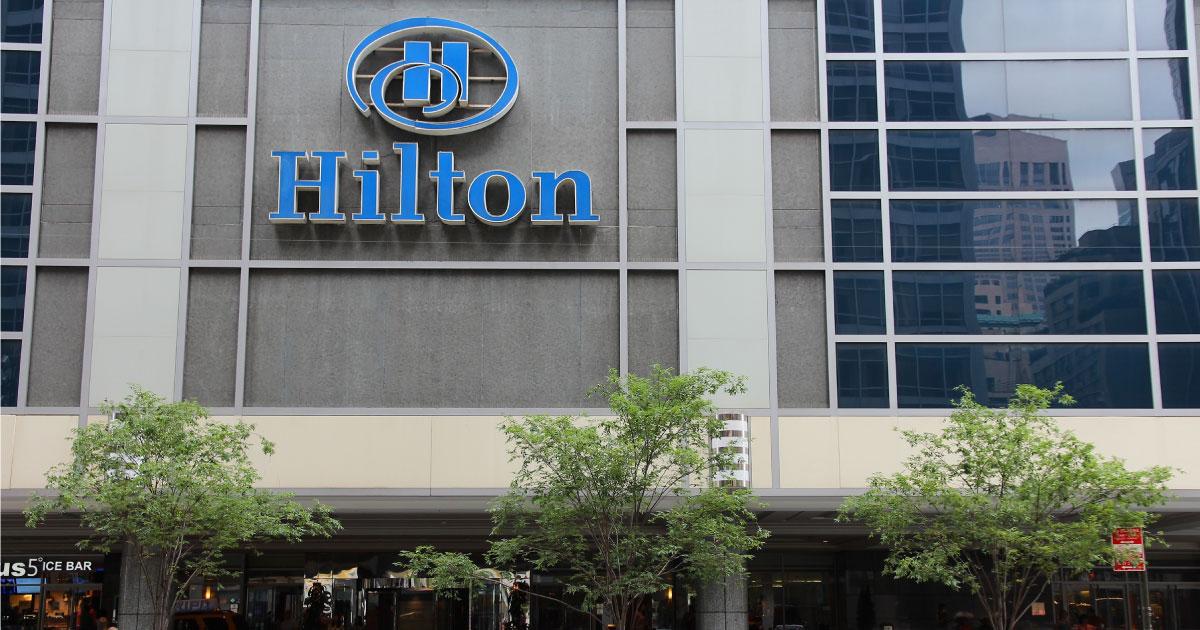What many third-party meeting planners feared would be an eventuality has happened, as Hilton Hotels & Resorts has followed Marriott International’s lead by cutting commissions by 30 percent.
Danny Hughes, Hilton’s senior vice president and commercial director for the Americas, said in a statement that rising group distribution costs was the leading cause for deciding to cut commissions to seven percent from 10 percent. The change takes effect Oct. 1 and will not impact existing business booked before that date.
“At Hilton, we recognize the important and integral role group intermediaries play in our meetings and events business and we are proud to partner with a wide network of travel professionals to create meaningful experiences for our guests,” he said. “At the same time, we also have to balance the needs of all parties and we therefore continually review our sales and distribution strategies to ensure we are offering the best value for our customers, hotels and owners.”
Hughes said that in light of growing group distribution costs and the complexity of intermediary services offered, “Hilton has revised its base group sales commission rate to seven percent for bookings into participating hotels in the U.S. and Canada.
“This change, whilst easing operations costs associated with group revenue, will allow our owners, over time, to make further investment in products and offerings that enhance the guest experience,” Hughes said.
The decision is likely to spark another firestorm for third-party planners, who were outraged when Marriott announced in January that it would cut commissions to seven percent from 10 percent and used language similar to Hilton’s announcement.
“The current business model and environment…” Marriott said in its statement, “present significant obstacles to making the investments needed to deliver a world-class experience for customers. While group intermediaries play an important role in the marketplace, costs for our North American hotels and owners are growing at a faster pace than group revenue, which impacts hotel profitability.”
“I am surprised,” said Renee Radabaugh, managing director and president of Paragon Events, based in Delray Beach, Fla. “Because of the response, I thought the rest of the chains would sit back and see how the public responds and the value of it. But rather than wait to see the numbers and fallout, now we have Hilton.
“It would seem that we’ve had to be ready for the ripple effect. When someone as big as Marriott, which has Starwood, too, does this, it makes it easier for everyone else to follow suit.”
Radabaugh said smaller independent planners and sourcing agencies will be hit the hardest.
“A lot of what’s happening is that it’s been drilled down to the travel agent/meeting planner,” she said. “I don’t want the spin to be all about the money, but when you’re pricing value to a client and when all you’re working for is the fee, it’s not trickling down. The hotels are not lowering their rates. Group business represents a lot of revenue. Meetings matter, but I feel like it is penny wise and pound foolish what the chains are doing.”
Marriott and Hilton own U.S. hotels with more than 1.4 million rooms, about 30 percent of the total U.S. inventory. Groups and meetings account for about $30 billion in annual U.S. room bookings and another $110 billion in food and beverage, audiovisual services, ground transportation and other ancillary services performed by hotels, according to a report by Kalibri, which conducts hotel research.
It’s a seller’s market right now and that does give the hotel chains a leg up on driving the standard and unless “we pivot into a buyer’s market, with all that is happening, it may not change, soon,” said Howard Givner, founder and executive director of the Event Leadership Institute and a former board member for the MPI Greater New York Chapter. He also frequently teaches and speaks at industry conferences on sales and business development, negotiations, innovation and entrepreneurship.
Givner, who wrote a perspective on the Marriott decision in The Meeting Professional, said Friday that while the Marriott rollout was botched, “business is business.”
“Third-party planners are getting a massive wake-up call,” he said. “Hilton owes Marriott a huge thank you for plowing the road. Marriott took all the slings and arrows and now Hilton doesn’t come across as hard to third-party planners.
“This is is where the market is shifting. They will take a small fraction of the blowback. Give Marriott credit for coming out and sticking to their guns.”
The landscape is likely to continue evolving, with other chains likely to follow suit. Givner said the key now for third-party planners is education, both in increasing their business acumen and in educating their clients.
“At the end of the day, there’s not a question about the value they provide to their clients,” he said. “Education on business practices is critical and education on how they can continue to provide more value.”
Givner offers a class on “Event Planner Pricing: How, & How Much, to Charge” and MPI, of which about 15 percent of its membership are third-party planners, also offers a range of related education, including at MPI’s World Education Congress.
“Sustaining high value and satisfying a relevant market need is imperative to the success of modern day business,” said Melissa Majors, director of the MPI Academy. “Organizations are rapidly evolving in an effort to drive growth, market value and healthy financials. The commission model, as demonstrated by both Marriott and Hilton’s recent announcements, is yet another example of how third-party planners are being impacted by these changes. It’s critical, now more than ever, for third-party planners to evolve their services and business models.”
Be sure to follow the blog and MPI social media channels, as an MPItv video story about Hilton’s commission cut will be available today.
Meeting and Event Professionals React as Hilton Follows Marriott’s Lead on Commission Cuts
Hilton Hotels & Resorts has followed Marriott International’s lead by cutting commissions by 30 percent.
March 23, 2018

ADVERTISEMENT
ADVERTISEMENT
YOU MAY ALSO LIKE
What are the biggest barriers meeting professionals face when trying to reduce food waste at events and how can they be overcome? Event industry sustainability experts weight in.
From intentional relaxation zones to increased personalization, learn about wellness event trends you should be watching right now.
MPI’s 2026 European Meetings & Events Conference—21-24 February in Barcelona—is not just about discussing trends, but experiencing how a destination brings them to life, says Christoph Tessmar, managing director of the Barcelona Convention Bureau.
MPI EMEC speaker Bogdan Manta on how people often don’t understand each other and how event professionals can bridge that divide.
Melissa D. Huffman shares the impact of receiving an MPI Foundation scholarship to attend MPI’s World Education Congress.






